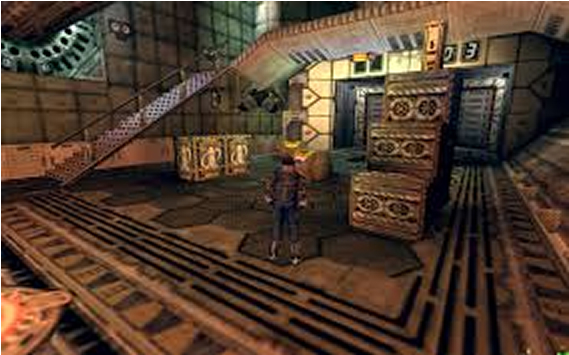Messiah



Messiah stands as one of gaming's most provocative and innovative experiments, boldly combining possession-based gameplay mechanics with a surreal cyberpunk religious thriller that pushed the boundaries of mature content and storytelling in video games. Developed by Shiny Entertainment and released in 2000, this third-person action game presents a unique premise where players control Bob, an angel sent to Earth to combat Satan's growing influence in a dystopian future society.
The narrative unfolds in a twisted vision of the future where corruption, violence, and moral decay have reached epidemic proportions, creating the perfect environment for Satan's earthly schemes. Bob arrives as Heaven's unlikely champion, tasked with infiltrating this fallen world and restoring divine balance. The story explores themes of redemption, free will, and moral corruption through a lens that mixes religious iconography with cyberpunk aesthetics, creating a narrative experience unlike anything else in gaming.
The core gameplay innovation revolves around Bob's ability to possess different characters throughout the game world, from security guards and scientists to mutants and cyborgs. Each possessed character offers unique abilities, weapons, and access to different areas, turning possession into a strategic tool for problem-solving and exploration. This mechanic creates multiple solutions to obstacles and encourages creative thinking about how to navigate the game's challenging environments.
Level design in Messiah emphasizes vertical exploration and creative use of possession abilities, with complex multi-tiered environments that reward experimentation and observation. Players must carefully consider which characters to possess based on their security clearance, physical capabilities, and equipment access. The game's puzzle elements emerge naturally from these possession mechanics, creating scenarios where success depends on understanding each character type's strengths and limitations.
The visual design creates a distinctive aesthetic that blends religious imagery with industrial decay and futuristic technology. The game's environments range from corporate facilities and urban slums to high-tech laboratories and underground hideouts, all rendered with a dark, atmospheric style that reinforces the game's themes of corruption and redemption. Character designs and animations effectively convey the moral decay of this future society while maintaining the game's darkly humorous tone.
Messiah's mature content and controversial themes made it one of the most provocative games of its era, featuring graphic violence, adult themes, and religious imagery that sparked debates about the boundaries of video game content. The game's exploration of moral ambiguity and religious concepts created a narrative complexity that appealed to mature audiences seeking more sophisticated storytelling in their gaming experiences.
Despite its innovative mechanics and bold narrative approach, Messiah struggled commercially due to its controversial content and unconventional gameplay that defied easy categorization. Many retailers refused to stock the game due to its mature themes, while the possession-based mechanics confused players expecting more traditional action gameplay. The game's difficulty curve and complex level design also created barriers for casual players.
Today, Messiah is remembered as a fascinating experiment that demonstrated video games' potential for tackling complex philosophical and religious themes while innovating mechanically. Its possession system influenced later games that experimented with body-switching mechanics, while its narrative ambition paved the way for more mature storytelling in gaming. For players interested in gaming's more experimental and provocative works, Messiah remains a unique experience that showcases the medium's capacity for controversial artistic expression.
Price: £6